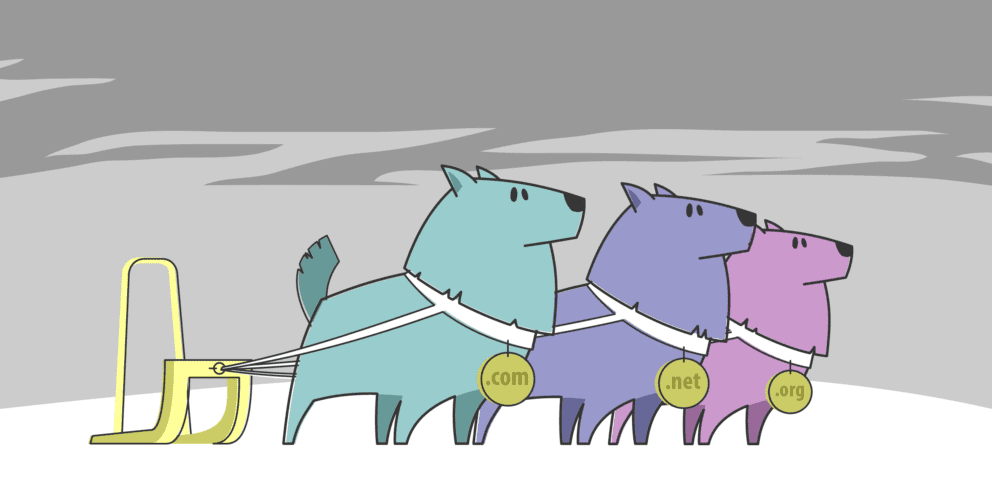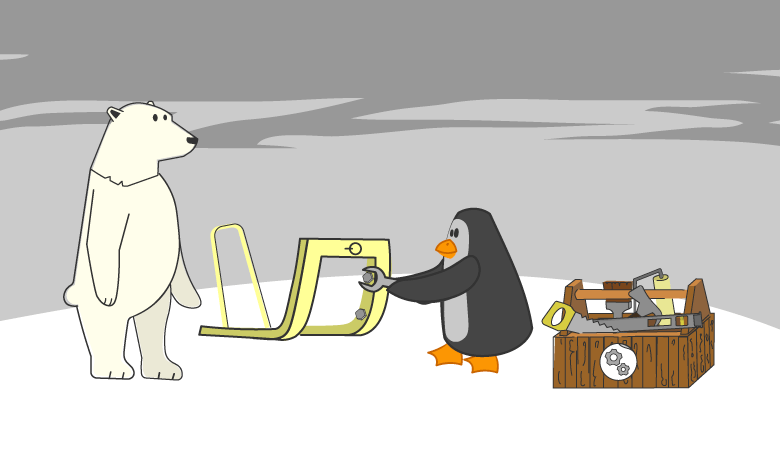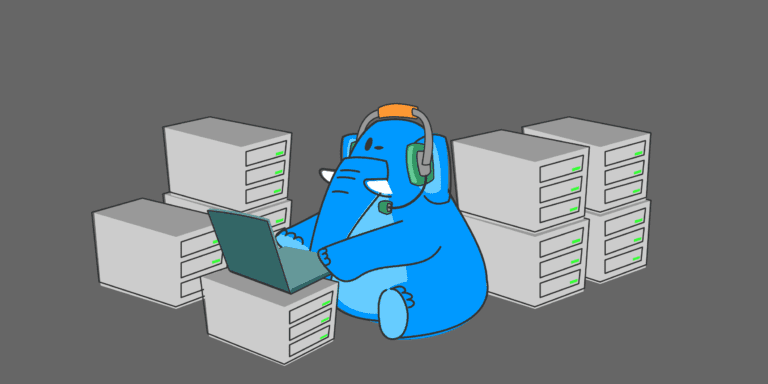Introduction

Many web hosting plans only allow you to host a single domain name within your account. This is fine if you only plan to host one website. However, this isn’t enough for everyone.
If you have multiple sites or plan to have more than one website in the future, you need to consider signing up for a multiple domain hosting account. There are a number of reasons why multiple domain hosting is the preferred option to single domain hosting.
In this guide, we will look at the reasons why you may want to choose this type of hosting plan. We will also look at some of the pros and cons of multi domain hosting so you can decide if this is the right web hosting option for you.
Finally, we will look at some of the things to look for when selecting the best multiple domain hosting provider.
Here’s what we are going to cover:
What is Multiple Domain Hosting?

A domain is your address on the web. It’s how people find your website, and each one is unique with each unique domain name pointing to a different website.
With multiple domain hosting, you have the ability to host multiple sites on a single web hosting account. This account, set up through your web hosting provider, gives you more flexibility and cost savings over a single domain account.
For example, your hosting plan may allow you to host 5 domains on your account. Let’s say that you pay 10 dollars a month for that account. Since it allows for 5 domains, you can host 5 different websites under that account. You don’t pay 10 dollars a month for each site. You only pay 10 dollars a month in total.
Multiple domain hosting can be a bit confusing if you’ve never encountered it before. But don’t worry – we can explain it using a simple everyday-life example.
Imagine you have a garage that you use to store your cars. You have a lot of cars, but you only have one garage. To make more room for your cars, you install car lifts in your garage. Now you can park multiple cars in the same garage, even though you only have one physical space.
This is similar to how multiple domain hosting works. You have one hosting account (the garage), but you can host multiple websites (the cars) on that account. Instead of installing car lifts, you use add-on domains and subdomains to make more room for your websites.
Multiple domain hosting is a hosting solution that allows users to host multiple websites on a single hosting account. This is achieved through the use of add-on domains and subdomains. Add-on domains are additional domains that can be added to an existing hosting account, while subdomains are domains that are part of a larger domain.
How Does Multiple Domain Hosting Work?
When you sign up for a multiple domain hosting plan, you’ll be provided with a single hosting account. You can then use this account to host multiple websites. To do this, you’ll need to purchase additional domain names and add them to your hosting account as add-on domains.
Once you’ve added your domains to your hosting account, you can create separate directories for each website. This allows you to keep each website’s files separate from the others, which makes it easier to manage your websites. You can also create subdomains for each website if needed.
Despite the fact, that with over 30,000 web hosts on the market multiple domain hosting, shared hosting, and VPS hosting are comparatively the same in terms of price tag, they serve different needs.
Multiple domain hosting is a cost-effective option for managing multiple websites under one account, while shared hosting is an affordable and user-friendly option for smaller websites. VPS hosting provides dedicated resources and more control for those with more technical expertise, making it a more powerful option for high-traffic websites. While each option differs in terms of cost, resources, performance, security, technical requirements, and support, they all share the common goal of providing reliable web hosting solutions to users.
| Feature | Multiple Domain Hosting | Shared Hosting | VPS Hosting |
|---|---|---|---|
| Cost | Affordable | Very affordable | More expensive |
| Resources | Limited | Limited | Dedicated |
| Performance | Lower performance | Limited | Faster |
| Security | Basic security | Basic security | More secure |
| Technical knowledge requirements | Basic | Basic | Advanced |
Both multiple domains and shared hosting allow multiple websites to be hosted on a single server. VPS hosting, on the other hand, is a type of hosting that provides users with a virtual private server, which is a dedicated portion of a physical server with dedicated resources and root access. This provides users with more control and flexibility over their hosting environment, as well as improved performance and security. Therefore, multiple domain hosting is not the same as VPS hosting, as they differ significantly in terms of the resources, control, and level of security provided.
Who is Multiple Domain Hosting For?

The ability to host multiple domains on a single account is attractive to a number of different people for various reasons.
1. Web developers
Let’s say you only have one site you want to host for your business. With a multi domain hosting plan, you can also set up a development site. Here, you can test out interesting applications, new themes and plugins, as well as carry out design work.
This allows you to ensure that the newly added features are compatible with your current site before you implement them. For site’s where uptime and security are concerns, this is a huge bonus.
2. Owners of multiple websites
Another use for multi domain hosting is the entrepreneur who runs several marketing sites. Since these sites often use little storage space and require few resources they are perfect for multi domain hosting. You can setup all of your sites under one account for easy management and less overhead costs.
3. Freelance web designers and small agencies
Finally, web designers who manage the sites they build for their clients often rely on multi domain hosting. This allows them easier management of their client’s sites. It also gives them the option of charging their clients hosting fees for this additional service.
Pros of Multiple Domain Hosting

You have probably already guessed some of the benefits that the best multiple domain hosting has to offer. Multiple domain hosting offers several advantages, including cost-effectiveness, time-saving, and flexibility.
1. Cost-effective
One of the biggest advantages of multiple domain hosting is that it can be a cost-effective solution. Hosting multiple websites on a single hosting account can save you money on hosting fees, as you won’t have to pay for separate hosting plans for each website. Additionally, some hosting providers offer unlimited domain hosting plans, which means you can host as many websites as you want on a single account without any extra charges.
For example, let’s say you have three websites that you want to host. If you were to purchase separate hosting plans for each website, it could cost you anywhere from $10 to $30 per website per month, depending on the hosting provider and plan you choose. However, if you opt for multiple domain hosting, you could host all three websites on a single hosting account for as little as $10 to $20 per month, depending on the hosting provider and plan.
2. Time-saving
Another advantage of multiple domain hosting is that it can save you time. With multiple domain hosting, you can manage all your websites from a single control panel, which can simplify the management process and save you time. You won’t have to log in to multiple accounts or control panels to manage each website, which can be especially beneficial if you have a lot of websites to manage.
For example, let’s say you have 5 websites that you want to manage. If you were to purchase separate hosting plans for each website, you would have to log in to 5 different control panels to manage each website. However, if you opt for multiple domain hosting, you can manage all 5 websites from a single control panel, which can save you time and streamline the management process.
3. Flexibility
Multiple domain hosting also offers flexibility, which can be beneficial if you plan on adding or removing websites in the future. With multiple domain hosting, you can easily add or remove websites from your hosting account as needed. This gives you greater flexibility and allows you to scale your hosting plan based on your needs.
For example, let’s say you have two websites that you want to host, but you plan on adding a third website in the future. If you opt for multiple domain hosting, you can easily add a third website to your hosting account when the time comes, without having to purchase a separate hosting plan.
We have talked about costs and ease of managing sites. For smaller businesses, these are huge benefits. To summarize, this is what you get if you go with a multiple hosting plan:
- Faster management
- Reduced admin overheads
- Easy to upgrade
Multi domain hosting also allows you to save time. If you are trying to run a business, this is essential. Since you don’t have to log into multiple accounts when you are managing your web hosting, you can save a great deal of time.
Another benefit is that a multi domain plan makes account admin and management easier as well. You don’t have to worry about payments, account expiration, and planned outages for multiple accounts. Since all of your sites are under one account, you only need to worry about one.
Another benefit to multi domain hosting is that these plans often come in tiers. If you outgrow your plan, you can easily upgrade to the next level by simply paying a bit more each month. Nothing else changes.
Cons of Multiple Domain Hosting

While there may seem to be little drawbacks to this type of hosting plan, even the best multi domain plans aren’t for everyone.
It is important to carefully consider the potential drawbacks before deciding if it is the right option for your needs. Be sure to weigh the advantages and disadvantages carefully and choose a hosting provider that can offer the features and resources you need to manage your websites effectively and securely.
Let’s get to the main disadvantages of multiple domain hosting.
To begin with, most multi domain plans are often hosted on shared servers. This means that there are hundreds, or even thousands, of other customers on the same server. When you choose this type of plan, the server resources are shared among all of the different customers.
You are only allocated a fraction of these resources. Due to this, you’ll have limited CPU resources, hard drive storage, and bandwidth allocated to your account. If you spread this across multiple sites on your account, you are further diluting your resources.
If at some time one of your websites experiences a sudden surge in traffic, it can impact the performance of all the other websites on the same account. This is because the resources are shared among all the sites, and if one site is using up a lot of resources, it can slow down the others.
Of course, you can give certain sites more resources by taking them away from other sites to compensate. However, once you max out there is no more room to grow.
2. All sites hosted on one account
Another drawback is that should there be an outage, all of your sites are affected. If you have your sites spread across multiple servers and web hosting accounts, if one goes out your other sites should remain online. In multi domain hosting, if your server is down so are all of your sites.
Remember, outages aren’t always the fault of your provider. If you misconfigure something or if your payment method is declined all of your sites could suffer.
3. Limitated performance
One of the biggest disadvantages of multiple domain hosting is the potential for performance limitations. When you host multiple websites on a single account, you are sharing resources such as disk space, CPU, and memory. This can result in slower website load times and decreased performance, particularly during high-traffic periods. Additionally, if one of the websites on your account experiences a spike in traffic or uses too many resources, it can impact the performance of all the other websites on the same account.
Let’s say you have a personal website and a small e-commerce store that sells handmade soap. Because you’re using multiple domain hosting to host both sites, the resources available to each site are limited. This means that if your e-commerce store suddenly experiences a spike in traffic, the website may slow down or even crash, leading to lost sales and a negative customer experience.
4. Security risks
Hosting multiple websites on a single account can also increase your risk of security breaches. If one website on your account is compromised, it can potentially impact all the other websites hosted on the same account. Additionally, shared hosting environments can be more vulnerable to attacks from hackers and other malicious actors. While many hosting providers offer security features and regular backups, it is important to be proactive in protecting your websites and regularly monitoring for potential security threats.
Consider a scenario where you’re hosting multiple websites on a single account and one of the sites is compromised by a hacker. Because all of your sites are hosted on the same account, the hacker could potentially gain access to your other sites as well, putting your entire online presence at risk. This highlights the importance of maintaining strong security measures, such as keeping all of your sites up-to-date with the latest security patches and using strong passwords.
Things to Look for When Choosing a Multiple Domain Host

Choosing the best multi domain hosting is a challenging task. Most of the popular hosting providers offer these plans, and the basic features are often the same. The key is to look past these basic features.
1. Cost
Obviously, the cost is one factor to consider. Most entry-level multi domain hosting plans are reasonably priced, offering discounts if you pay for the year upfront. You can see from the plans offered by SiteGround that not only are they affordable, but they are scalable as well. For only two dollars a month more you get the ability to host multiple sites.
2. Support
Something else to investigate is the level of support that the hosting provider offers. If you are hosting multiple sites, especially for your clients and customers, you want the ability to get someone on the phone. The best multi domain hosting providers offer phone support, with email and live chat being other options. At a minimum, the best plans will respond to a support request within 24 hours.
3. Features
Features are important as well. You may find that some of the less expensive providers don’t offer the tools you need to manage your websites. Again, if we look at what SiteGround offers there are some nice features on offer. Most of the larger hosting providers offer similar benefits.
4. Account management
The final thing to look for in a multi domain host is a reputable management tool such as Plesk or cPanel. If you are going to host multiple sites on your account, a tool that will help you manage them is a must.
Some providers offer customers their own management tool. This is fine if it helps with multi domain accounts. However, do some research. If other customers claim it falls short in this area, look for a provider that gives you the right tools. Plesk and cPanel are widely available and easy to use.
What to Pay Attention to When Choosing a Multiple Domain Host

When looking for any type of hosting provider, uptime and reputation are going to be the top two things to watch.
1. Reputation
It is essential that you’re trusting your websites to a provider with a solid reputation. Look over reviews and see what other customers have to say. Don’t go by testimonials on the provider’s website. These aren’t always the best representation of customer experience. Instead, do a bit of research and read some of the honest reviews found elsewhere online.
2. Uptime
Uptime is the other area you want to pay close attention to. You should not even consider a provider that offers you anything less than 99% uptime in their service level agreement (SLA). Pay attention to the reviews you read. If you see that a provider promises this, but customers say otherwise they may not be delivering as promised. A Google search for “hostname outage” can help reveal information on the last time a particular company had a problem.
3. Scalability
Finally, the best multiple domain hosting providers make upgrading easy. If you grow to big for your plan, you should be able to switch over to a larger plan without any disruption in service. Even if you paid for a year up front, a good provider will help you transition. You may also want to look for providers that will allow you to upgrade to a dedicated plan in case you need this option in the future.
Conclusion
Multiple domain hosting plans can be a great option for individuals or businesses who want to host multiple websites on a single account.
However, it’s important to remember that not all hosting plans are created equal. Research is key to finding the best provider for your needs.
Take the time to evaluate pricing, features, apps, and resource requirements before making a decision. Remember, flexibility is also crucial when it comes to hosting plans, so be sure to choose a provider that offers the ability to move between plans.
With so many quality hosting providers on the market, there’s no reason to settle for anything less than the best.




